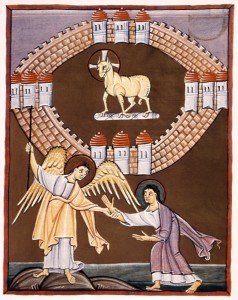As I ended the last installment of this article, I was sharing thoughts, drawn from biblical scholars, about how we should, in our present day, interpret the book of Revelation. Should we think about it as revealing things to come or should we take seriously what John was saying to Christians in his time? Many prefer to take it as “things to come.”
Was John trying to say to the Christians of his time that: accommodation to imperial ways is wrong; the struggle between the lordship of Christ and the lordship of Caesar is the great conflict; it is important to persevere even when it looks like the beast is winning; the beast, appearances to the contrary, does not have the final word and is not the final Word? In its first-century context, Revelation is a pervasively anti-imperial document. What might this mean for Christians today, especially American Christians in the time of the American Empire? Was the problem with the Roman Empire that it was Roman? Or was the problem that it was an empire?
Note that a historical and contextual approach to Revelation does not restrict its meaning to the past. It begins with its past meaning, but is not confined to that. It asks: If this is what Revelation meant then, what might it mean now?
Revelation is full of contrasts. It uses the dualistic contrast between the forces of good and the forces of evil, an ancient archetypal image that continues to have power in the present. Think of the Star Wars movies with their battles between the evil empire of Darth Vader and the forces of light symbolized by Luke Skywalker and his light saber. Revelation indeed particularizes the dualistic contrast into a conflict between the lordship of Christ and the lordship of Caesar.
It is full of contrasts in another sense as well. It is very violent, and much of the violence is done by God. God sends suffering, earthquakes, plagues and death upon the world as the seals are opened, the trumpets blown and the bowls of God’s wrath are poured out. God destroys Babylon the Great and the armies of the beast. The victory song in chapter 18 is filled with gloating over divine violence. At the same time, Revelation includes some of the most magnificent language in the Bible, much of which has found its way into Christian worship and hymns.
If you read Revelation and then worship the Divine Liturgy, you will see what the author means. The Divine Liturgies we use incorporate some of the beautiful words of the Book of Revelation. Can you find them?

